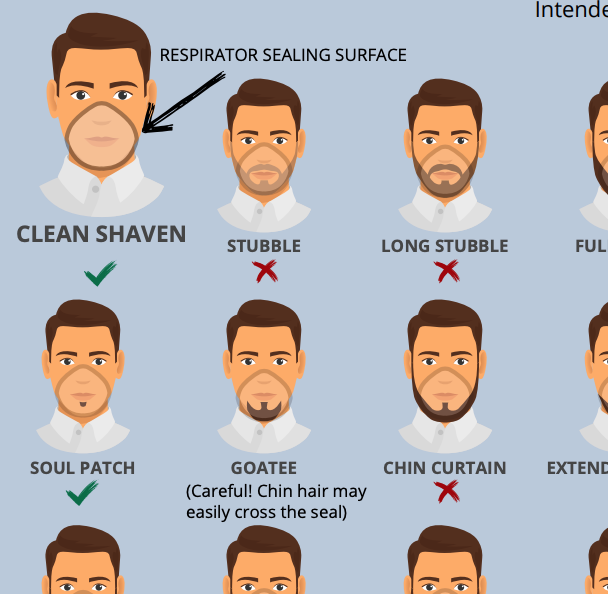No*
* but it will add an extra layer of protection for you and people you might breathe on, over and above cloth masks or unmodified surgical masks. Get vaxxed, get boosted, mask up!
Compared to no mask at all? Sure, a bit. Compared to a cloth mask? No - it's easier.
More protective masks do not use a "thicker filter" or "more layers" - it's technology. Beautiful meltblown, non-woven electrostatically charged technology. Literally plucks the COVID right out of the air.
Ash "The Eliminator" Bloomfield answered a question early in 2022 about N95 masks. His answer was a bit complicated, but the gist was: higher filtration masks are good, but you need a good fit to get the most out of them.
Simply put, the mask should create a seal around your nose and mouth so that as much air as possible is transferring through the mask's filter material, and not sneaking in through gaps. Gaps aren't filtered!
Close-fitting respirator-style masks like KF94, N95 and P2 are typically more protective than surgical masks precisely because the latter usually allow a lot of air leakage.
The USA CDC produced  this handy graphic showing which facial hair styles work with respirators, and which don't.
this handy graphic showing which facial hair styles work with respirators, and which don't.
Beards and anything more than very light stubble, will dramatically increase leakage, and you will lose a lot of the benefits of a better respirator. There are some solutions out there, but the simplest one is to shave it all off. Sorry lads.
I hear ya! It can be struggle getting younger kids to even keep a mask on for five minutes let alone get a good fit. We like KF94 boat style masks because they are usually quite comfortable for kids to wear for longer periods of time.
We found it helps to teach your kids why they are wearing a mask, and why it's important that it fits them well. Then just use the same guide as adults above.
Doing a "fit test" at home can be turned into a fun little exercise too. Well, kinda. Just do the best you can!
Usually the answer is yes. N95, KF94 and P2 masks typically allow a much better fit on their own than unmodified surgical masks. An average fitting surgical mask will usually not be as protective as an average-to-poor fitting disposable respirator.
Don't be discouraged though, you can substantially improve the fit of KF94 masks by moulding the nose wire closely to your nose so that you feel no air leaks, and by adjusting the straps to increase the tightness of the mask. See this study and this study for some further details.
Beware though, many of the "surgical" masks sold also use filter material of dubious quality - make sure that if you do wear them, you find ones with independent test results. Genuine South Korean-made KF94 solves this problem.
People working in medical and dangerous substances industries get fit tests using a test agent (e.g. a bitter substance) that can be measured or detected inside their mask to ensure their face works well with a specific respirator. Fit is never 100% perfect, so the goal is to exceed some threshold of filtration efficiency, e.g. 95% (N95). Ideally, we could fit test everyone, but that's impractical.
Thankfully, you can get pretty good results without a fit test by following the general guide above. You are unlikely to get the "fit factor" required for occupational use (although it is possible), but you will get a lot closer than you can with a surgical or cloth mask.
This engineer-come-YouTuber Aaron Collins AKA the "mask nerd" has heaps of videos where he tests masks on his own face, including a lot of KF94s, and gets some very good results. In fact just a few days ago he tried an approximated NIOSH fit test using the very same Good Manner KF94 mask we sell. His result of 98.74% filtration efficiency at the lowest point was just below what would be considered a passing grade. For reference, a good surgical mask might get you to 60-70%, and a cotton cloth mask? Maybe 30-50%.